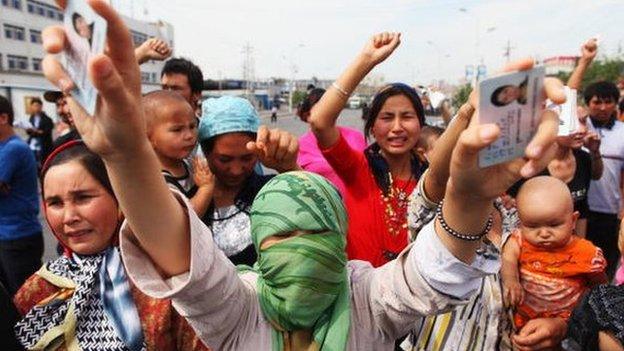US condemns China jail term for Uighur scholar Ilham Tohti
- Published
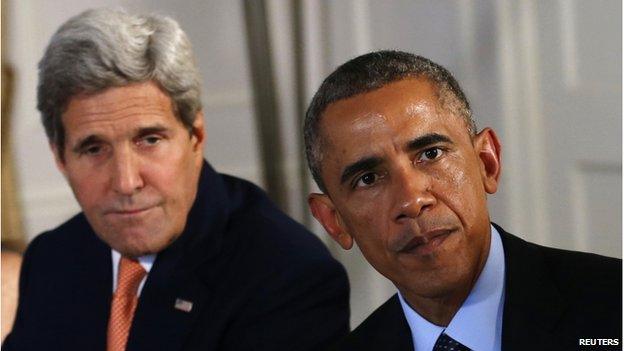
Both Secretary of State John Kerry and the White House condemned Tohti's conviction
The United States has expressed strong concern after China jailed Uighur academic Ilham Tohti for life.
Secretary of State John Kerry said he was "deeply disturbed" at the move. He and the White House both called for Tohti's immediate release.
China's foreign ministry said it was opposed to foreign interference in China's judicial sovereignty.
Tohti was jailed on Tuesday after Chinese authorities accused him of promoting separatism.
Several of his students have been arrested on similar charges.
'Peaceful dissent'
Ilham Tohti has spoken out on behalf of the Muslim Uighur minority group, who live in Xinjiang in China's far west. He has called for dialogue between Beijing and the Uighurs as a way of reducing tensions.
In a statement,, external Mr Kerry called Tohti's sentence "retribution" by Beijing for Tohti's promotion of human rights for Uighur citizens, and said his detention "silenced an important moderate Uighur voice".
The White House said, external civil society leaders like Tohti play a "vital role" in reducing ethnic tensions in China.
"We stress the importance of Chinese authorities differentiating between peaceful dissent and violent extremism," it said.
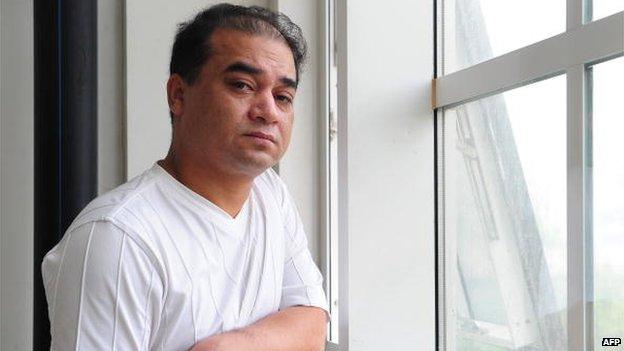
Uighur academic Ilham Tohti was detained in January
In a daily press briefing on Tuesday evening, China's foreign ministry spokesman Hua Chunying was asked by reporters to explain Tohti's sentence.
She said: "China's judicial authorities made their ruling in accordance with the law. I would like to remind you that China is a country governed by the rule of law, and China's judicial authorities handled the case according to the law."
"We firmly oppose interference in China's judicial sovereignty and independence by any country."
In one of the few Chinese reports on the case, Xinhua said, external Tohti had used the Uighur Online site and classes that he taught at Beijing's Minzu University to advocate for separatism as well as attracted students and citizens to join him.
Damien Grammaticas says the severity of the sentence has shocked many
Tohti was detained in January after he criticised Beijing's strong response to a suicide car attack near Tiananmen Square carried out by Uighurs from Xinjiang.
China has been grappling with a spate of violent public attacks this year, which authorities have attributed to Uighur extremists inspired or aided by overseas terror groups.
In response it has launched a crackdown, arresting and jailing scores of people for terrorism activities. Several have been sentenced to death.
But Uighur activists say that China's strong-armed tactics in Xinjiang - including cultural and religious repression - are fuelling tensions.
- Published23 September 2014
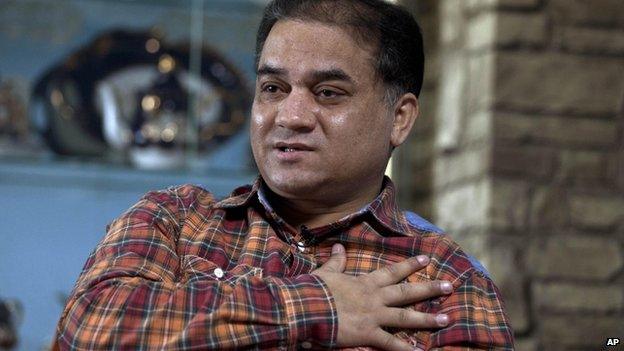
- Published16 September 2014
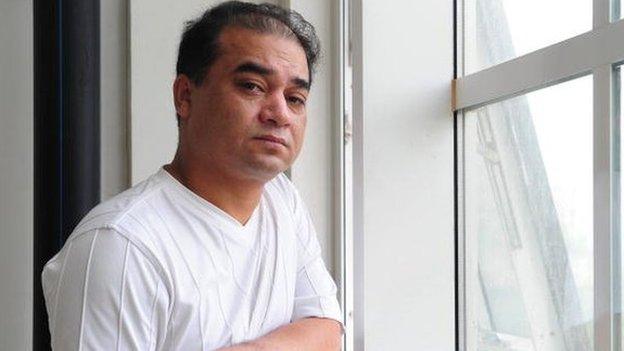
- Published26 September 2014
